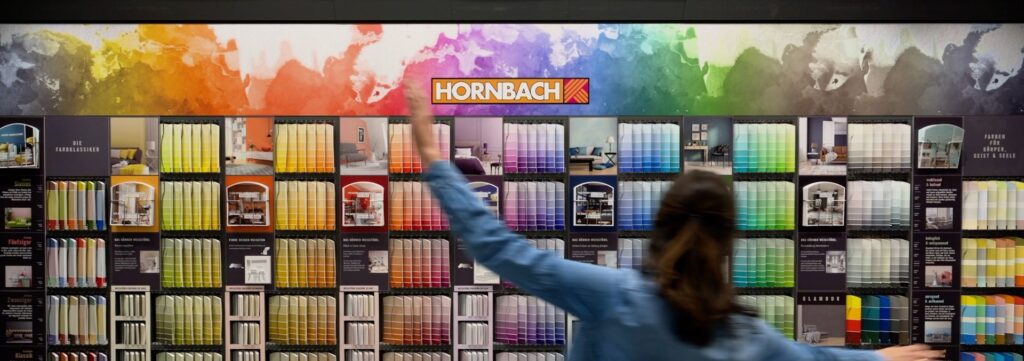“We are not just selling products. We sell projects to people so that they can create their visions,” says Carsten Mueller, head of Enterprise Architecture & Security at Hornbach Baumarkt AG, summarizing the core business of one of the largest home improvement and do-it-yourself (DIY) retailers in Europe.
Known for its extensive range of products, competitive pricing, and customer-centric approach, Hornbach has built a solid reputation over the years. Founded in Germany in 1877 as a small workshop, the retailer has grown into a major player in the European DIY market, employing 25,000 people. The company remains family operated, with a strong focus on customer satisfaction and long-term growth.
“We have more than 170 stores operating in nine European countries, and we keep expanding our footprint across Europe,” Mueller says. “As Hornbach focuses on providing the best price to its customers, efficiency of processes – and especially an efficient software solution – is key for us.”
Expanding the Business Model: From Stores to Reseller Platform
The DIY retailer focuses on four key pillars: a wide product range with more than 120,000 products in categories including building materials, tools, garden, and decorative supplies; large store formats often exceeding 10,000 square meters; a low-price policy with high-quality products; and well-trained staff providing support for DIY projects.
“Everything you need for your garden or home renovation, you can get at Hornbach,” Mueller explains. To offer customers even more products for their personal projects, the retailer decided to level up its online store and create a reseller platform where it will connect offerings from other retailers with its own customer base.
To build a system that would scale to accommodate the expected growth within the next 10 years, Hornbach implemented SAP Order Management foundation as a stable foundation for its corporate strategy.
“SAP Order Management foundation is a system that helps businesses process orders efficiently,” explains Pano Papadopoulos, business development manager for SAP Retail.
“SAP Order Management foundation uses an event-based architecture to rapidly channel any orders through various business systems, including ERP and fulfillment systems,” Papadopoulos adds. “This intelligent system not only processes orders swiftly but also harnesses order data for strategic analysis, enabling smarter business decisions for the future.”
Hornbach already realized the benefits of this solution, Mueller says: “SAP Order Management foundation allows us to access new markets quite fast and connect all the systems we need. In the first month of its launch, we have processed more than 100,000 orders and we can respond to a customer’s order within milliseconds. Today we process up to 1,000 orders in under one minute. This will allow for the order volumes we expect in the future. We measure the success of the solution by using OpenTelemetry, an open source standard, and monitor the processing speed of incoming orders. This way we can tackle potential issues early.”
Besides dealing with large order volumes, Hornbach’s system landscape already proved its adaptability. Due to the flexibility of its modular system landscape, the retailer could integrate a recent acquisition into its operational system in a very short time.
Hybrid Architecture: Connecting to Cloud Services
Hornbach is running on a hybrid system architecture, following its SAP S/4HANA transformation project step-by-step. “We chose a cloud-native architecture that can scale – for all system loads that we might not be aware of today,” Mueller says. SAP Order Management foundation is a cloud-native solution connecting to an on-premise system backbone.
Hornbach wants to be able to add more channels fast and create a seamless customer experience across all its channels. “We aim for a composable enterprise architecture, and for that we use event-driven architectures,” Mueller says. “That’s where SAP comes in, because we’re able to connect our enterprise event mesh to plug in business created through platforms of hyperscalers like Amazon or Azure.” By moving to an event-driven architecture, Hornbach will be able to leverage the power and innovations from hyperscalers as well as connect new systems with current on-premise systems.
In the future, Hornbach will keep transforming its system landscape. SAP Order Management foundation will be rolled out to further countries and the scope of the solution will be extended: B2B orders as well as orders from external marketplaces will be routed through SAP Order Management foundation. Additional solutions like SAP Omnichannel Sales Transfer and Audit will be next on the retailer’s list.
“The combination of new technologies like event-driven architecture, AI, and cloud-native solutions will give Hornbach great power for growth in the next years,” Mueller says, smiling.

